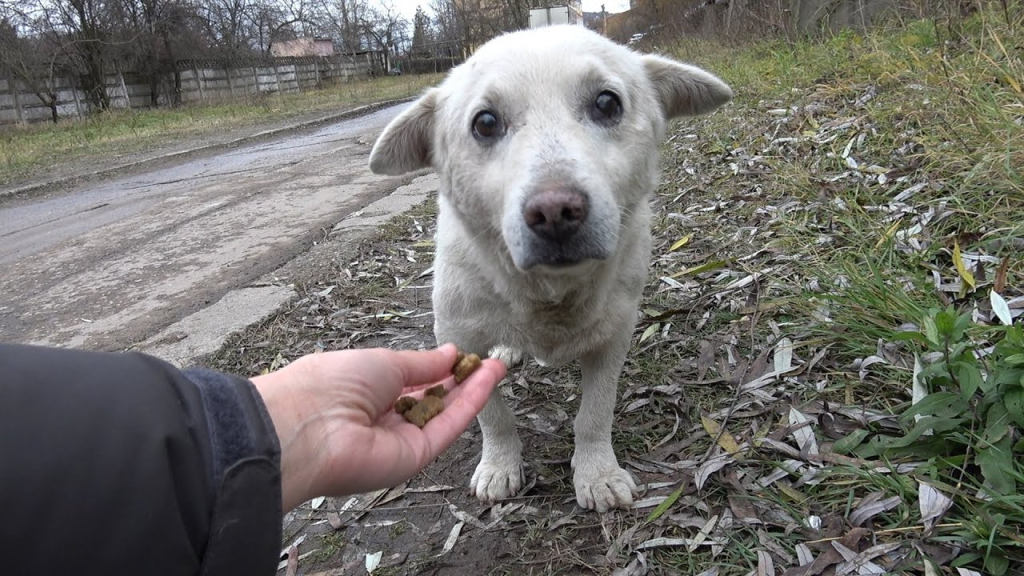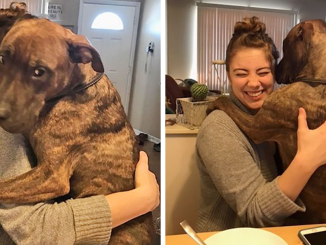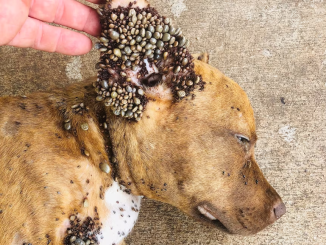
Dr. Katherine Polak, Head of Stray Animal Care Southeast Asia for FOUR PAWS
The dog meat trade is big business in Vietnam and threatens the lives of millions of dogs every year, many of them pets. Every day, pets are violently snatched off the streets, from yards, and even while out on a walk with their owners. These unlucky dogs make a brutal journey to slaughterhouses, markets, and restaurants, where a gruesome death awaits them. But times are changing, and the brutality and illegality of pet theft is no longer being tolerated by Vietnamese authorities.
In a landmark case, police in Thanh Hoa Province received a tip off regarding a gang of dog thieves believed to have stolen thousands of dogs since the beginning of the year. On September 15, 2019 the police successfully carried out the largest ever bust of a dog theft ring in Vietnam, resulting in the seizure of 51 dogs. According to the police, the gang carried stun guns and other sharp weapons, and rode motorbikes through residential areas late at night shooting dogs roaming outside. Police arrested a total of 16 suspected gang members and questioned more than 40 suspects. The gang not only brutalized neighborhood dogs, but also caused outrage among local people, particularly pet owners.
Following the interception, Police struggled to properly care for the confiscated dogs given their limited capacity for animal care, so the Asia Canine Protection Alliance (ACPA), of which FOUR PAWS is a member, stepped in to offer assistance. There were 13 dogs in need of immediate medical care due to severe wounds sustained during capture. Dogs with painful open wounds were anaesthetised, treated, provided pain medication and antibiotics, and housed in a temporary shelter for ongoing treatment.
The Asia Canine Protection Alliance is an international alliance of four animal protection organizations committed to ending the illegal trade of dogs in Vietnam: FOUR PAWS, Animals Asia, Humane Society International, and Change for Animals Foundation. ACPA is working to build collaborative relationships with the governments throughout Southeast Asia where the dog meat trade is prevalent, and has already secured a moratorium on the trade in dogs between Thailand and Vietnam.
Following the confiscation, the police publicised the bust throughout the province using local media so that stolen dogs could be reunited with their families.
Over the course of 2 weeks, all 51 dogs were successful reunited with their owners, who were devastated by their pets’ disappearance.
This bust pets a major precedent as dog theft is rarely treated as a criminal offense in Vietnam unless the canines are valued at more than VND2 million ($86).
“These arrests will hopefully go a long way in deterring future dog theft in Thanh Hoa Province, and potentially throughout all of Vietnam. While the dog meat trade is often defended as ‘culture’ or ‘tradition’, the reality is that there are significant health and societal impacts associated with the trade and these are becoming of ever-growing concern within Vietnam and internationally.”

Earlier in the week, the Food Safety Management Board of Ho Chi Minh City urged locals to stop eating dog meat in an effort to improve Vietnam’s national image with tourists. They also warned the local community of the health risks posed by consuming the unregulated meat. This followed a similar call by the Hanoi People’s Committee last year.
In addition to membership in ACPA, FOUR PAWS also runs a ‘Cats Matter Too program‘ in Central Vietnam with local charities PAWS for Compassion and Vietnam Cat Welfare to improve veterinary training, animal welfare education, and provide free spay/neuter services.
“From Broken to Resilient: The Inspiring Journey of a Homeless Canine’s Healing and Redemption”.
“Unfolding the Chronicles with a Homeless Dog, a Trembling Soul Navigating the Harsh Realities of Life on the Streets. His spirit was broken, and his heart bore the invisible scars of abandonment and neglect. Fear had become his constant companion, and he sought refuge in the shadows of a world that had shown him little kindness.

But amidst the indifference of the world, there were those who saw the urgency of his situation. Compassionate individuals, driven by empathy and a deep love for animals, recognized the urgency of his plight. Their hearts ached at the sight of a dog so scarred and broken, and they endeavored to offer him a lifeline of hope.
The road to healing was a delicate mission, marked by patience and gentleness. The scarred homeless dog, initially wary and fearful of human contact, was approached with utmost care. It took time, but slowly, trust began to form between the dog and his newfound caretakers. Commissioned by passion and genuine concern, they worked tirelessly to offer him a lifeline of hope.

The journey to healing was a turbulent path, a trial by fire to transform the broken spirit. He was gradually coaxed away from the shadows that had been his refuge, and his heart began to thaw in the embrace of love and reassurance. With each passing day, his fear gave way to trust, and his wounded soul found solace in the silent gestures of compassion.
The pivotal moment of rescue was a triumphant point in the dog’s life. He was gently coaxed away from the haunting memories of his rough background, and he found himself enveloped in an atmosphere of care and belonging. With each passing day, his fear transformed into courage, and he began to blossom in the warmth of genuine affection and understanding.

The dog’s journey from a place of darkness to the embrace of light is a poignant reminder of the capacity for compassion and intervention, even in the face of overwhelming fear and despair. The scarred homeless dog, once abandoned and broken, became a beacon of resilience and hope.
This tale is a testament to the power of resilience in the face of adversity, a celebration of the indomitable spirit that, despite all odds, strives for love and redemption. It stands as a reminder that, even in the darkest corners of life, there is always room for a brighter tomorrow, fueled by love, compassion, and the unyielding spirit to overcome.”



Leave a Reply